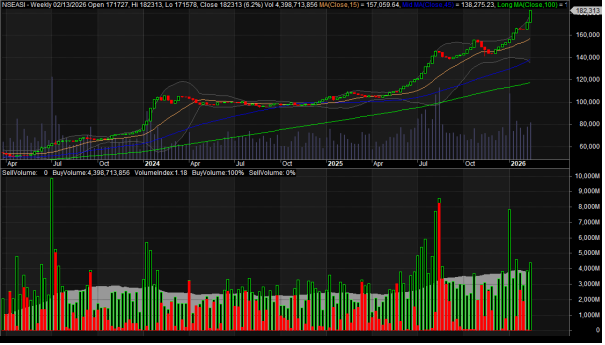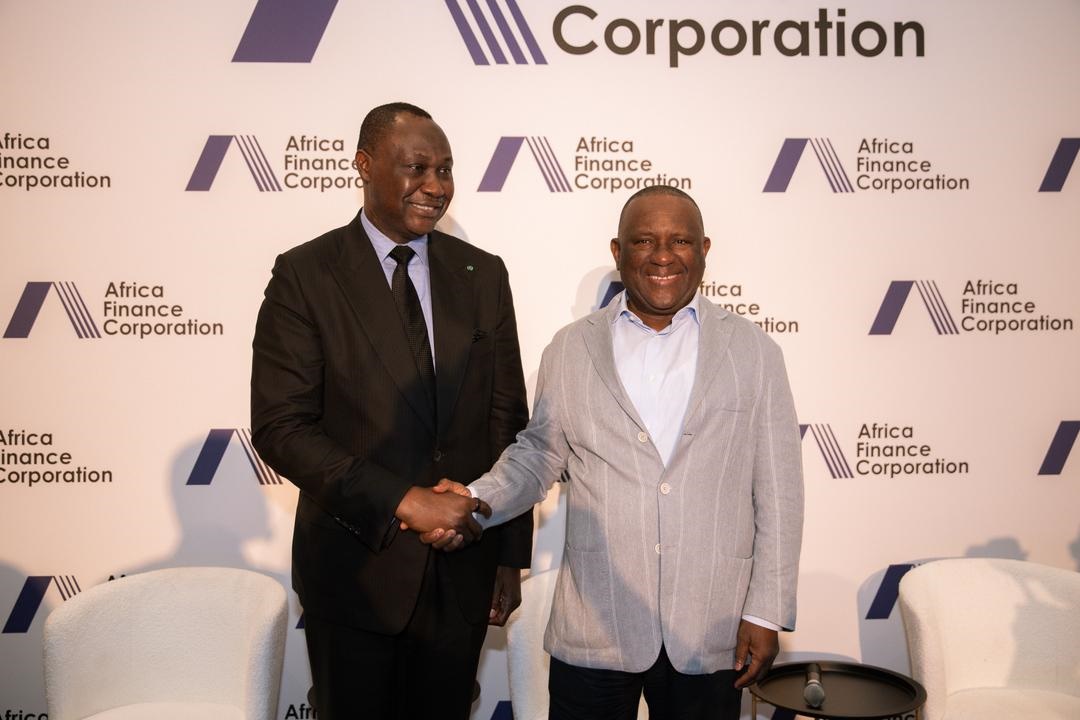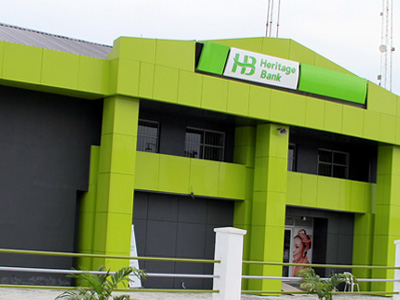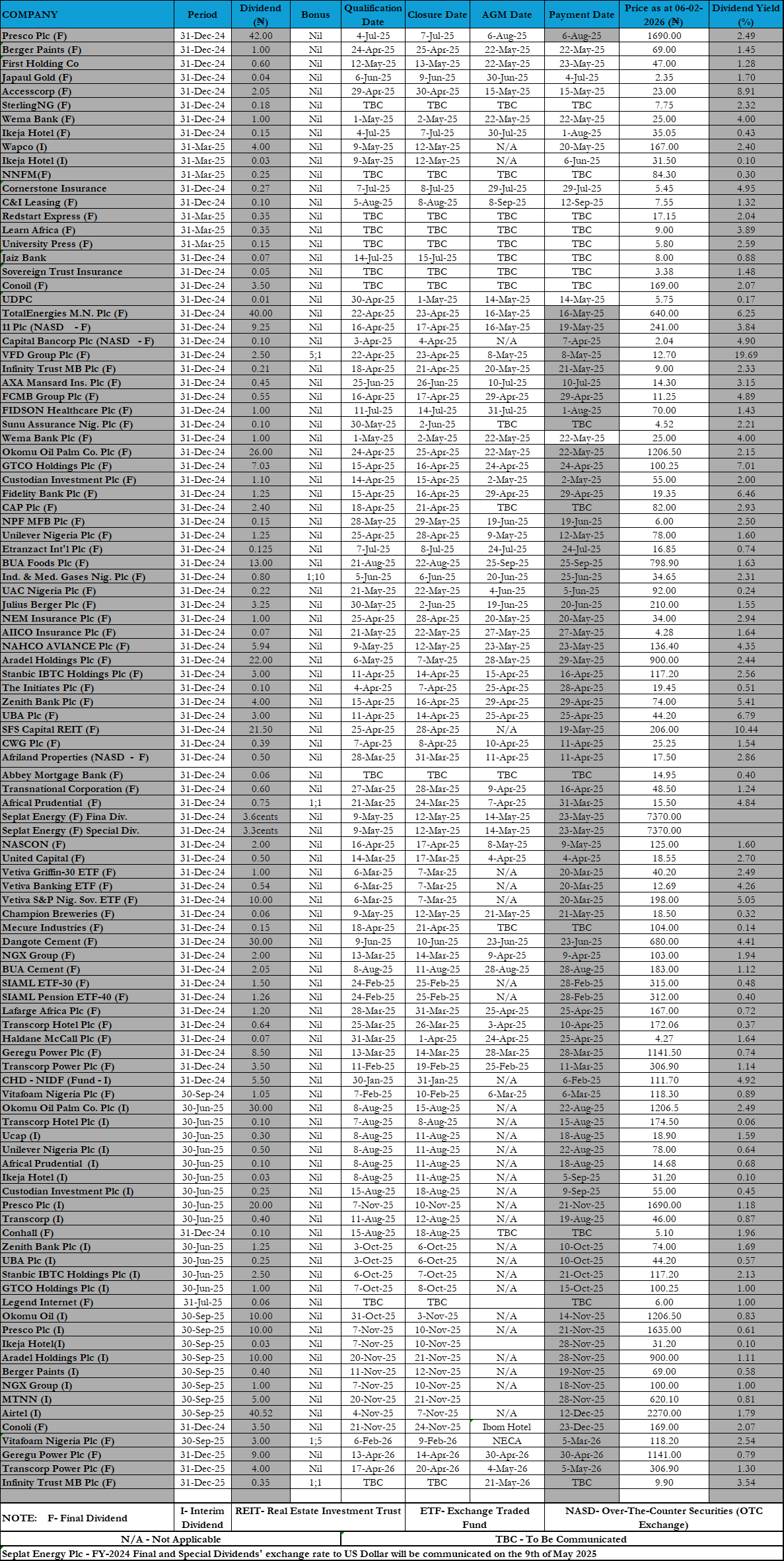
(April 4, 2017 pix during the visit of Stanbic IBTC Holding Company’s management to the Nigerian Stock Exchange, where the immediate past chief executive, Mrs. Sola David-Borha performed the closing gong ceremony)
Just as promised in its notice of delay in its audited result for the half-year ended June 30, 2017, the board of Stanbic IBTC Holdings Plc presented its financials for the period showing a triple digit growth in net profit despite a modest 36.28% increase in gross earnings for the period, approving a robust dividend per share of 60 kobo.
Details of the result showed that earnings and profit were driven by the group’s corporate and investment banking and wealth business segments.
Gross earnings for the period climbed N25.878bn from N25.896bn to N97. 198bn; helped by interest income of N56.728bn, up from the previous half-year’s N36.713bn, driven by the N40bn reported in corporate and investment banking, the group’s major strength from its origin, rising from N20.208bn in the corresponding half-year of 2016; followed by N13.855bn from the personal & business banking segment. Interest expense growth was slower, rising from N13.864bn to N15.693bn, resulting in net interest income of N41.035bn, as against the N22.849bn reported in the corresponding period of 2016.
Fee and commission revenue stood at N28.074bn from N27.795bn and fee and commission expense dropped to N181m from N389m; resulting in net interest and commission revenue crawled to N27.893bn from N27.406bn. Trading revenue jumped from N6.607bn to N11.966bn and other revenue to N430m from N205m, all of which increased non-interest revenue from N34.218bn to N40.289bn, also driven mainly by the corporate and investment banking segment’s N18.772bn from N13.299bn; ahead of the N16.483bn from the wealth segment, up from the previous N13.451bn.
Income before credit impairment charges of N81.324bn from prior half-year’s N57.067bn; credit impairment charges climbed by N5.503bn or 65.12% to N13.953bn from N8.45bn; resulting in income after credit impairment charges which rose from N48.617bn to N67.371bn, the bulk of which was the N36.369bn also from the corporate and investment banking business, compared to the previous N16.281bn; followed by N18.255bn recorded by the wealth segment, up from N14.861bn.
Operating expenses for the half-year period stood at N38.202bn, down from the previous N32.935bn, boosted by the N21.71bn other operating expenses, which rose from N18.557bn and staff costs of N16.492bn, up from N14.378bn. The personal and business banking segment accounted for N19.501bn of operating expenses, up from N16.754bn; followed by the corporate and investment banking business’ N15.202bn from N12.385bn. The bulk of staff cost, N9.284bn came from personal and business banking, up from N8.481bn; followed by N4.729bn in the corporate and investment bank segment, rising from N3.703bn; while the wealth segment accounted for N2.479bn, slightly higher than the N2.194bn in the preceding half year. Personal and business banking, as well as corporate banking swelled the other operating expenses, contributing N10.217bn, up from N8.273bn and N10.473bn and N8.682bn respectively.
Profit before tax increased by 86% to N29.169bn from N15.682bn; while profit after tax N24.112bn or 113.05% from previous half-year’s N11.317bn, the lion’s share of which came from the N20.43bn contributed by the corporate and investment banking business, up by N17.141bn or 521.16% from N3.289bn; while the wealth business yielded N8.922bn, which was slightly better than previous N7.014bn; with the personal & business banking segment recording a loss of N5.24bn, compared to the prior profit of N1.014bn.
translating to Earnings Per Share of 230 kobo, up from 95 kobo; just as net profit margin climbed to 24.8% from 15.86%, an indication of the robust improvement in the management of the company as measured by the ability to convert much more of its revenue to profit (profit per Naira of 24.8 Kobo from 15.86 Kobo).
Further analysis of the bank’s loan book shows that of the N402.365bn gross loans and advances to customers, up from N390.58bn, N371.48bn are performing, compared to previous N371.905, while N30.885bn, which rose significantly from N18.675bn, out of which N18.749bn, was classified as “doubt,” representing a rise of by N13.946bn or 290.36% from N4.803bn.
The bulk of the group’s exposure is still heavily skewed to the manufacturing sector, which accounted for N132.123bn or 32.83% of total; from N101.242bn or 25.92%; followed by N61.608bn or 15.31% of total to the mining and quarrying sector, which also accounted for the bulk of non-performing loans (N16.246bn, up from just N2.114bn) in the bank’s books; from the prior half-year’s N65.578bn.













